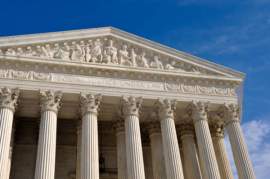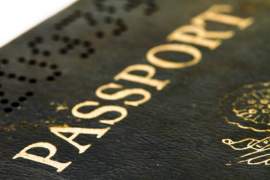
How Natural Disasters Increase Illegal Immigration

Another primary reason for illegal immigration can be prompted by a natural disaster like an earthquake, tsunami or hurricane. In these instances, a person will lose their home and all of their belongings in the tragic event at hand. In the most recent natural disaster that began on January 14, 2010, Haiti's earthquake - with magnitude of 7.0 - had hit the capital of Port-aux-Prince.
As did many Haitians left homeless and destitute, thousands of victims may choose to seek refuge through the immigration to another country or state. In addition, many other historical natural disasters have called for a global relief effort, which has propelled for the immigration of hundreds of millions of people over the course of history including:
The 1980 eruption of Mount St. Helene in Washington
The 1993 Snowstorm that swept across the Eastern and Central U.S.
The 2005 Hurricane Katrina
Haitians in America are using this occurrence to leverage the humanitarian aid by requesting approval of residency for the illegal immigration of Haitian-Americans. Lincoln Diaz-Balart, a Cuban-American Republican member of Congress, was quoted asking, "How much does Haiti have to suffer before Haitians in the United States are granted TPS pursuant to the law?"
This is a controversial period to bring up the long-debated concern of illegal immigration, but immigration rates may very well rise after this past week's unfortunate turn of events. The presidential administration under Barack Obama has promised to do all they can in aiding the Haitian relief organization, and have offered play host for many displaced persons. Additionally, talks of new immigration policies will be presented in the new presidential light as early as the end of January.
At the moment, Haitian-American activists, immigrant advocates, as well as South Florida lawmakers are all at once lobbying the presidential administration under Barack Obama in order to prevent Haitian immigrants from being deported back to Haiti - a country that is in absolute ruin.
Their goal will be to persuade the administration to grant about 30,000 Haitian nationals to have TPS, or Temporary Protected Status as to not be seen as an offender of illegal immigration. Obama has and will continue to receive tremendous amounts of pressure for the relief efforts and tremendous progress a granted TPS for suffering Haitians would provide.
A decision like this may rouse concern and discontent among American citizens, as well a massive amount of media attention. Regardless, Barack Obama has a crucial decision to make in the following days and weeks. Whatever the outcome of his ruling, the rest of the world will be watching with discerning eyes. Can America be unselfish and humanitarian with its immigration policies? That is the ultimate question.



















